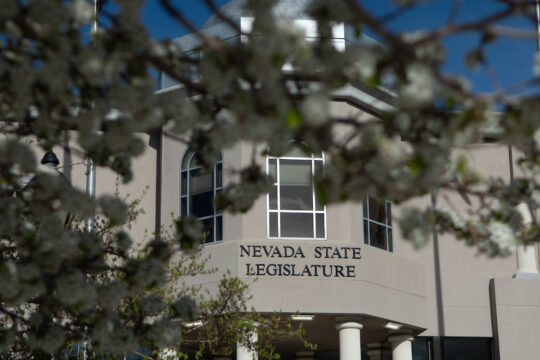Nevada's Budget Chairs Brace for Financial Challenges Ahead
As Nevada’s budget chairs prepare to navigate uncertain economic waters, all eyes are on the Nevada Economic Forum’s upcoming financial forecast on May 1, 2025. This critical announcement will set the tone for the state’s fiscal planning for the 2025-2027 biennium, with early projections pointing toward minimal growth or stagnation in General Fund revenues. The apprehensions surrounding this announcement reflect the high stakes for Nevada’s economy and the challenges that state officials may face in balancing the budget and maintaining essential services.
The General Fund, which acts as the financial backbone supporting Nevada’s public services, ensures operational funding for education, health care, infrastructure, public safety, and more. However, concerns over flat revenue projections have caused budget chairs to adopt a cautious and strategic posture in preparation for potential economic difficulties. If the May 1 forecast confirms these grim predictions, Nevada lawmakers may be forced to make tough decisions, including reassessing priorities, rebalancing funds, or even implementing budget cuts.
This cautious approach underscores the unique economic dynamics that Nevada faces. Unlike states with more diversified economies, Nevada’s heavy reliance on tourism and hospitality makes its fiscal health particularly vulnerable to external factors—such as national economic downturns, shifts in consumer behavior, or global disruptions. In the past, economic turbulence has underscored how any dip in discretionary spending on travel or leisure can directly impact Nevada’s tax revenues, destabilizing state budgets and creating urgency around reallocating resources.
However, preparation for these challenges reflects the proactive mindset of Nevada’s budget leaders. By anticipating a potentially unfavorable fiscal outlook, they are positioning themselves to react quickly and decisively if the forecast necessitates drastic measures. This forward-looking approach is vital in ensuring that the state remains adaptable and resilient in the face of economic uncertainty. While no one wants to consider budget cuts or reductions in services, the ability to plan for multiple scenarios offers a degree of flexibility that will be critical in the months ahead.
The possible strain on the General Fund revenue also highlights the broader conversation about fiscal sustainability in Nevada. The state’s reliance on volatile industries like tourism makes its budget uniquely susceptible to boom-and-bust cycles. Policymakers have long debated ways to diversify the state’s economy to reduce such volatility, but implementing economic diversification strategies takes time and sustained investment. For now, short-term adjustments to the budget may be unavoidable given the potential constraints.
The ripple effects of spending decisions in the coming months could be significant, touching nearly every sector that relies on public support. Education, which often accounts for a substantial portion of state budgets, could face difficult funding decisions. Similarly, health care programs for underserved or vulnerable populations may come under scrutiny. Infrastructure projects, which drive both economic growth and job creation, might also face delays or downsizing if funding becomes insufficient.
With these challenges on the horizon, state leaders also face the unenviable task of communicating tough choices to Nevada residents. Any significant budget cuts to essential services are bound to spark public concern, as they often have tangible effects on families, workers, and communities. Transparent communication and a clear demonstration of the necessity of such moves will be vital as the state navigates potentially difficult financial decisions.
The May 1 economic forecast represents more than just numbers—it is a pivotal moment that will shape Nevada's fiscal future for the next two years. While optimism may persist in some corners, the budget chairs' cautious stance reflects the reality that financial uncertainty must be met with preparedness and agility. The ability to take a long-term, strategic view while making immediate adjustments will be key for Nevada as it seeks to weather potential economic challenges.
Ultimately, this moment serves as a reminder of both the vulnerabilities and resilience inherent in Nevada’s financial system. Though the forecast may bring news of stagnation or limited growth, the state's leadership understands the importance of planning, adaptability, and maintaining essential services for the well-being of its residents. The coming weeks will demand tough conversations, innovative thinking, and a steady commitment to keeping Nevada on the path to fiscal stability amidst uncertainty. Economic challenges may be ahead, but Nevada’s leaders are determined to ensure the state remains prepared and resilient.
